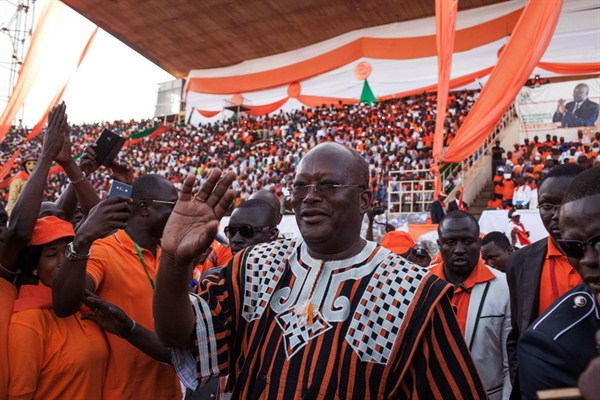According to virtually all participants and observers, Burkina Faso’s election on Nov. 29 was the most democratic and competitive in its history. The crowds of voters and party workers who celebrated in the streets cheered the winner, President-elect Roch Marc Christian Kabore. But they also applauded the electoral process itself, coming as it did after nearly three decades of former President Blaise Compaore’s autocratic rule and a year and a half of exceptional turbulence that saw both his ouster in a popular insurrection and a failed coup attempt by his military supporters.
For many Burkinabe, the advent of a freely elected government may now lay to rest the past year’s political uncertainties and open up a more hopeful time. Abdoul Aziz Sana, a farmer in Bobo-Dioulasso, said that Kabore’s campaign promises were ambitious but probably will not be fully realized. “We just hope that he does the most essential things,” Sana told a daily newspaper in the capital, Ouagadougou, such as improving health and education, creating jobs for young people, and developing the country’s infrastructure.
Some of the activists who helped bring down Compaore’s regime in October 2014 were less optimistic. Sams’K Le Jah, a popular reggae artist and leader of the influential Balai Citoyen, or Citizens’ Broom, youth movement that organized many anti-Compaore protests, agreed that the election was “historic” and marked a “sign of change.” But alluding to the fact that Kabore had been a key figure in the Compaore regime until just nine months before the insurrection, Sams’K Le Jah, speaking to a local news agency, noted that it was members of the “old political class” who dominated the election. “We have the impression that Blaise Compaore’s system is still here.”

